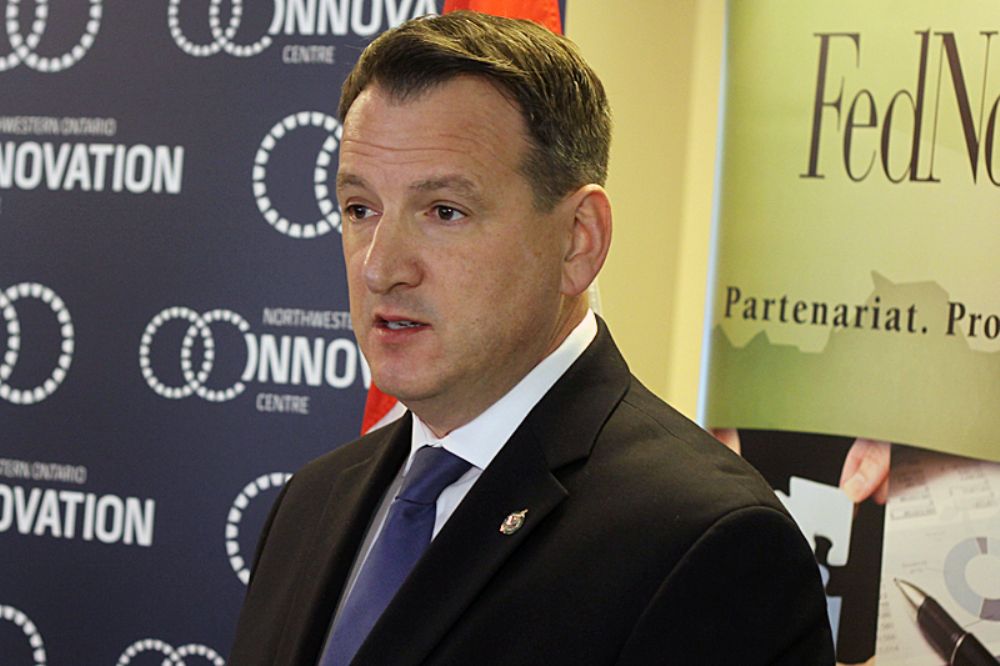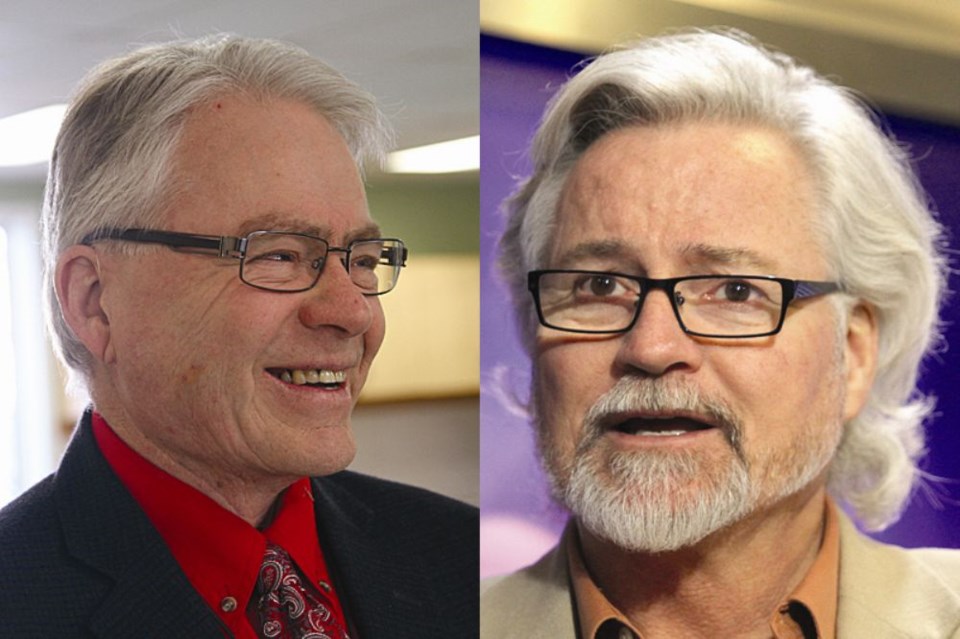THUNDER BAY – Bruce Hyer has many words to describe the federal budget.
But he doesn’t want to call it a budget.
“It’s not a budget. It is election promises and a huge 518-page press release with lots of promises in it,” said the Green Party MP for Thunder Bay-Superior North in a telephone interview an hour after the budget was released.
“There are no balance sheets. It’s not real numbers. I have three small businesses and if I ran my small businesses the way the government of Canada runs its finances I wouldn’t have any businesses.”
Federal Finance Minister Joe Oliver tabled the budget in the House of Commons Tuesday afternoon, the first time the government has balanced the books in seven years.
The timing of the budget release, coming after the start of the fiscal year as the Conservatives worked to keep the promise to deliver books in black ink despite a dramatic decline in global oil prices.
The government projects a $1.4 billion surplus, though it cut the contingency reserve fund from $3 billion to $1 billion and sold a stake of General Motors for $2.1 billion.
MP John Rafferty (NDP, Thunder Bay-Rainy River) agreed the budget is more of an election platform than financial statement and said it targets areas the Conservatives believe could be up for grabs during this year’s election.
“The budget doesn’t even mention Northern Ontario let alone address the concerns of Northern Ontarians. It’s pretty spare in terms of people who live in Northern Ontario,” Rafferty said.
“The fact Northern Ontario isn’t even mentioned, I suppose they’ve given up on Conservative seats in Northern Ontario.”
The budget kept a long-awaited promise from Prime Minister Stephen Harper to allow two-earner families to split their incomes for tax purposes as well as increasing the maximum annual contribution to Tax Free Savings Accounts from $5,500 to $10,000.
The government claims two-earner families could save up to $6,600 from tax cuts and benefits but Rafferty doesn’t believe most of those are accessible to lower and middle class families.
“If you make $100,000 or more and you have younger children you’re going to be able to take advantage of that but I would suggest that 80 per cent of Canadians are not going to be able to take advantage of that,” he said.
However, Rafferty said he was pleased to see the government include changes he has pushed for to the Registered Retirement Income Funds, which is imposing less restriction on the minimum amount seniors must withdraw.
He was also in favour of the increase to the Employment Insurance Compassionate Care leave from six weeks to six months.
Many of the new spending initiatives, such as an $11.8 billion boost over 10 years for defence as well as $750 million over years for public transit infrastructure, won’t actually begin until 2017-2018.
“Don’t compromise tomorrow by spending recklessly today,” Oliver told Parliament during his speech.
Instead, Opposition politicians see that as merely a ploy to earn political favour in the ballot box.
“It’s very easy to promise things before an election and then after the election things change,” Hyer said. “Most of that is deferred spending for later and that’s very easy to say and harder to do.”
He is also disappointed to see the environment ignored.
“There is not word in the budget about climate change. Not a word about preventing climate change, stopping climate change and nothing about adaptation to climate change,” he said.
“There are new subsidies for fracking, liquefied natural gas, accelerated capital cost allowances for the oil industry. There’s more money for the (National Energy Board) to ram pipelines up through the west coast and off to China but not word about climate change.”
 Federal Natural Resources and FedNor Minister Greg Rickford defended his government’s budget and said through the years of recession they did not cut vital spending to the provinces.
Federal Natural Resources and FedNor Minister Greg Rickford defended his government’s budget and said through the years of recession they did not cut vital spending to the provinces.
“We have not slashed major health or education program transfer spending to the provinces as we’ve seen in previous governments,” he said in an interview with CKPR Radio.
“The federal government’s emphasis on balancing the budget and in particular focus on small business, families, seniors, national security and specific items around natural resources as they would relate to Northwestern Ontario interest in forestry and mining are all contained in this budget.”
He specifically identified $86 million to be spent over two years for forestry innovation and market expansion, as well as the expansion of the 15 per cent Mineral Exploration Tax Credit, as two pieces that will benefit Northwestern Ontario industry.
